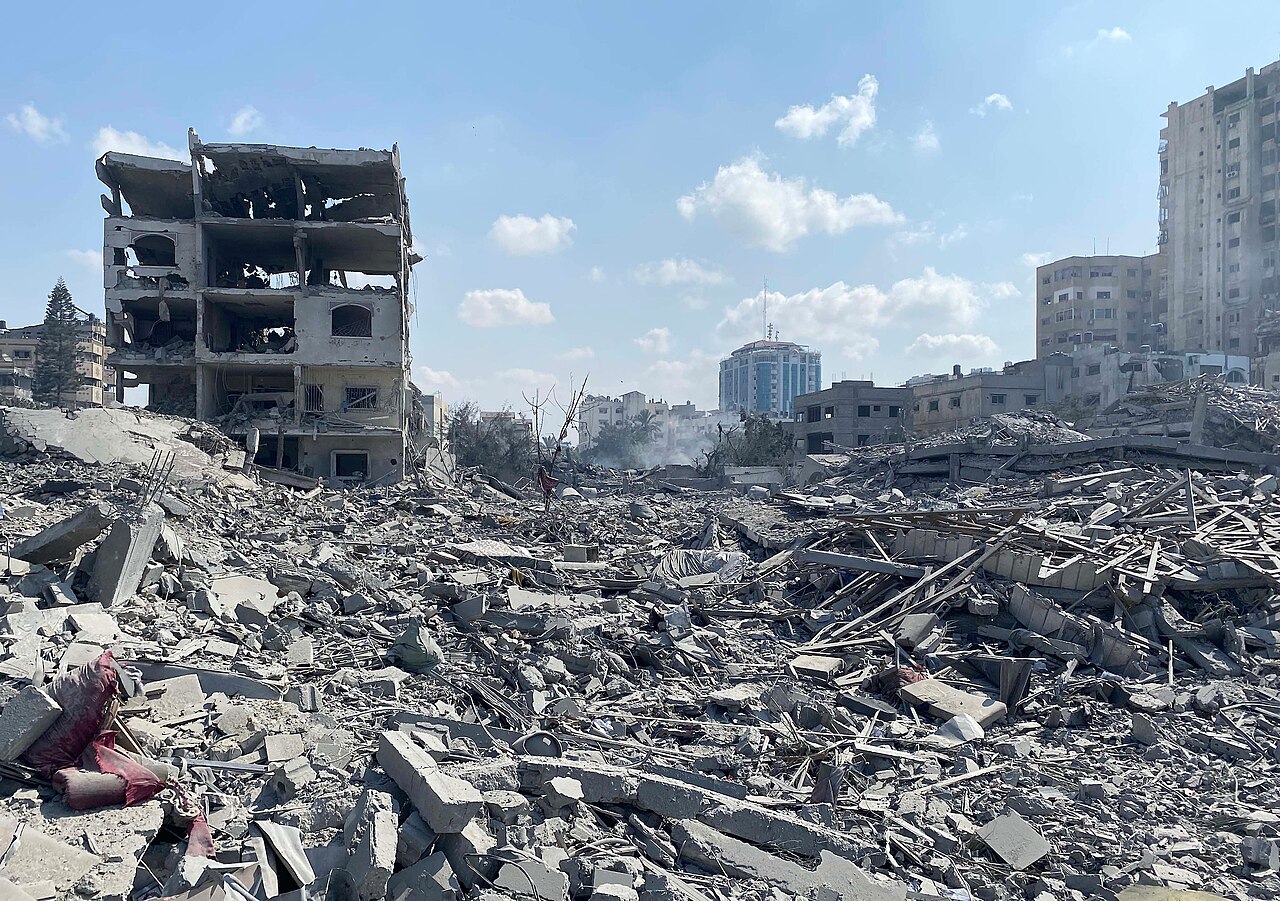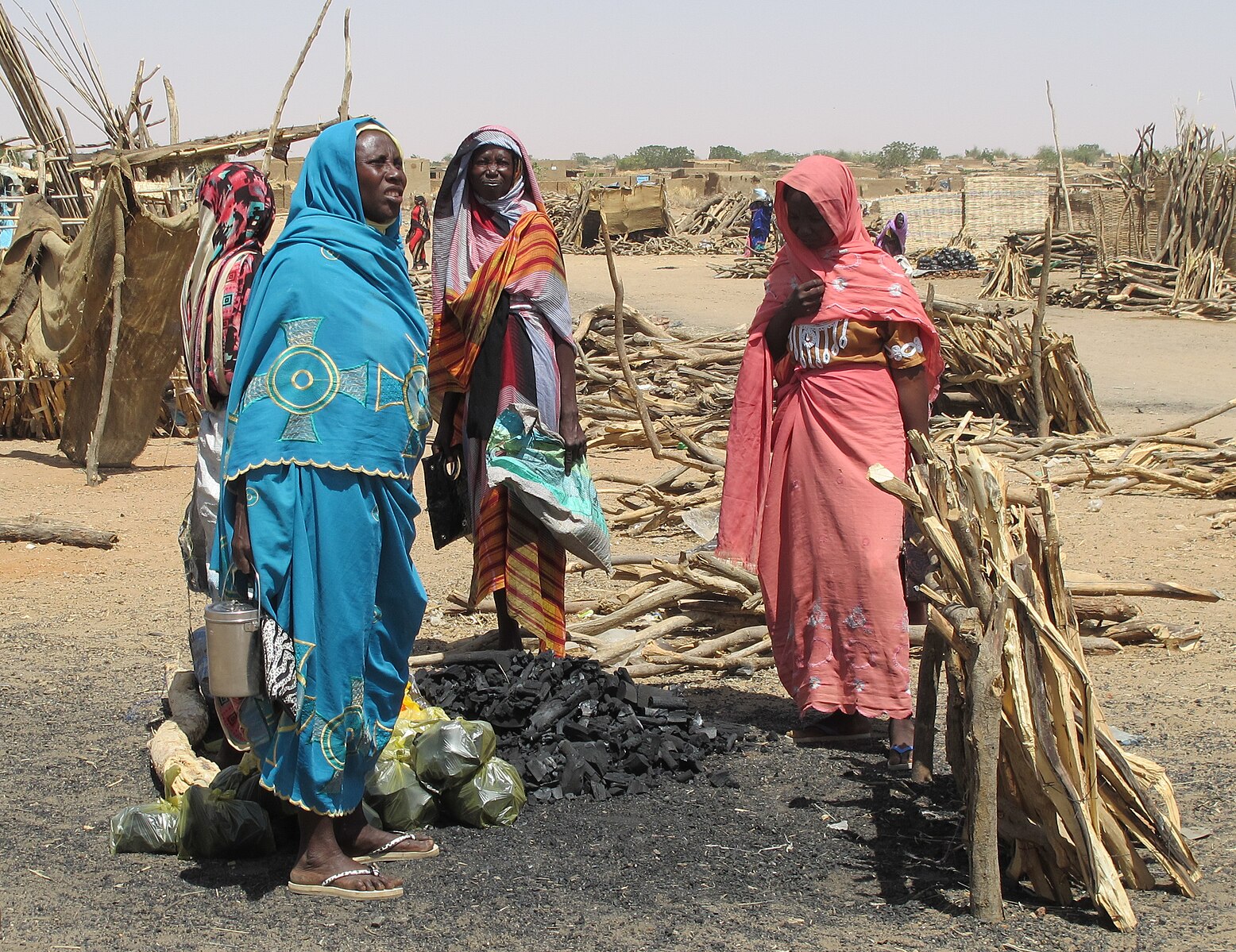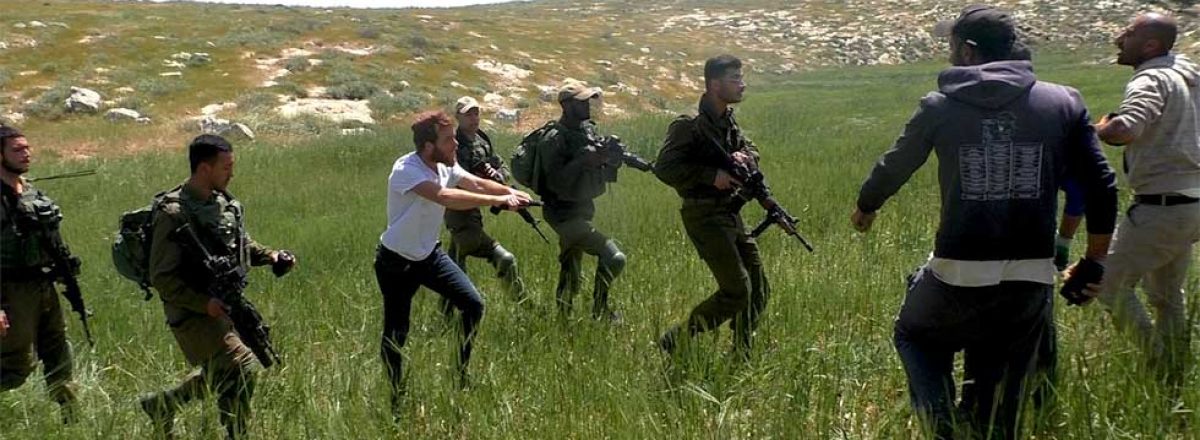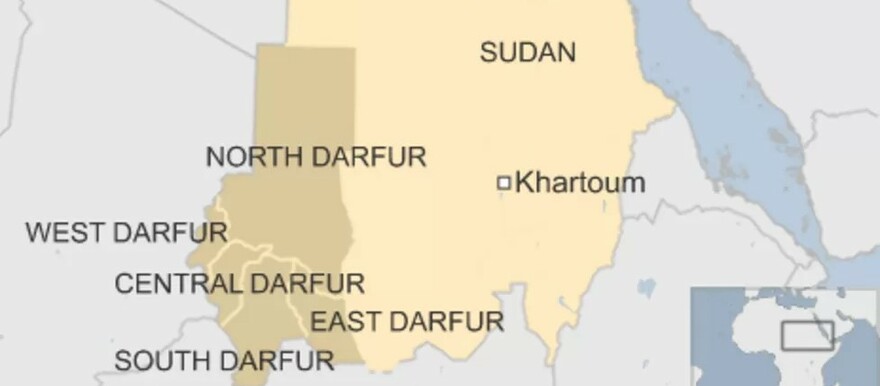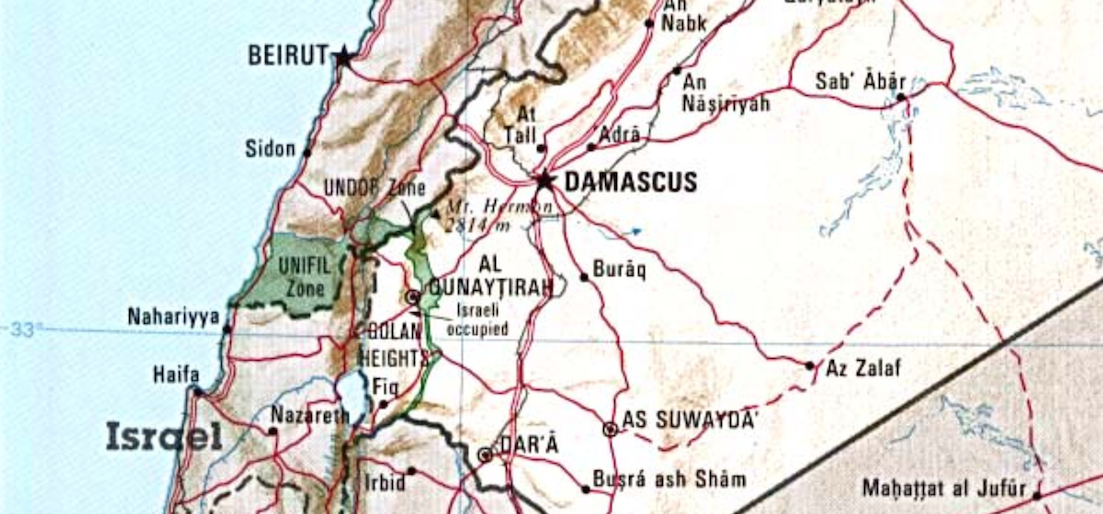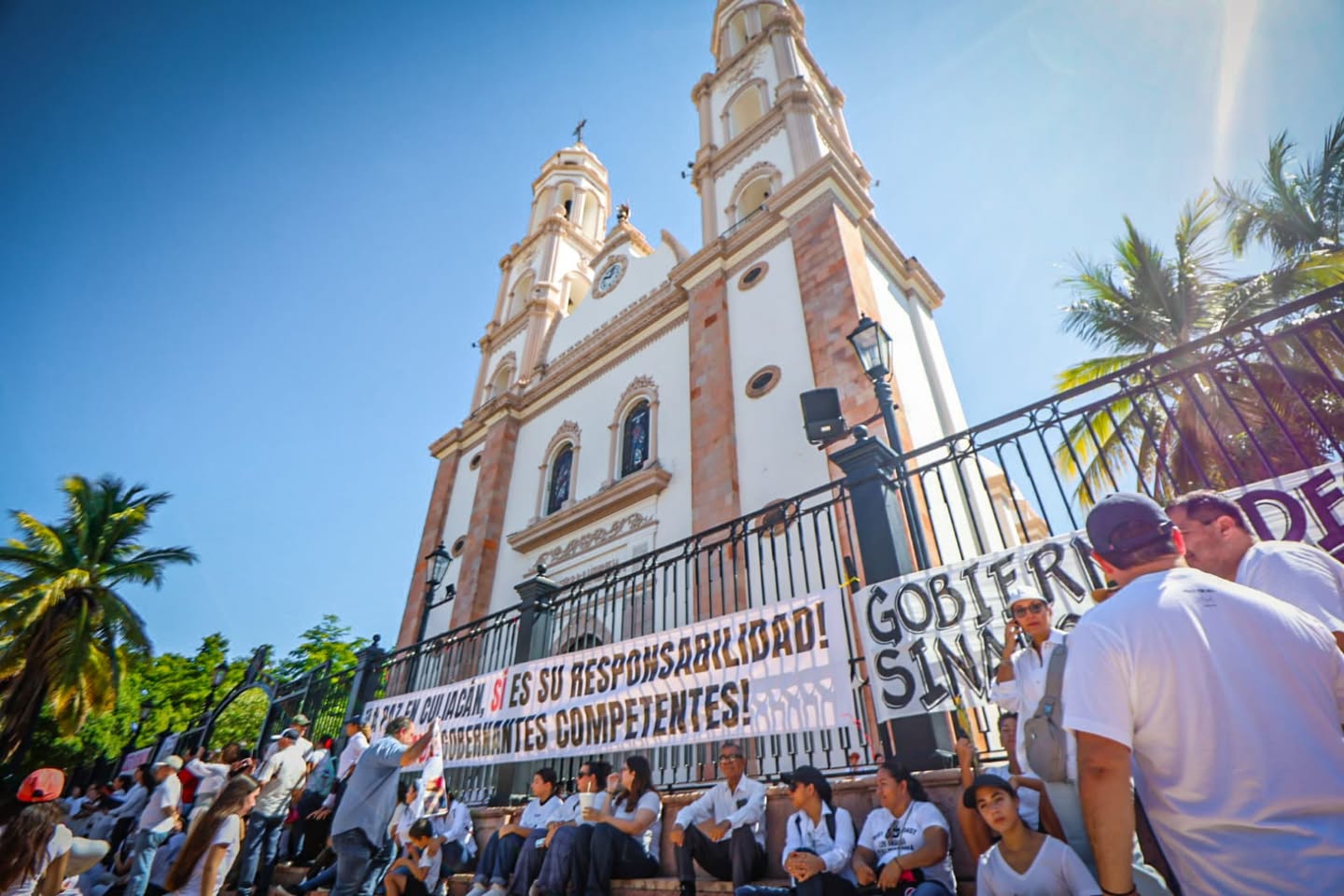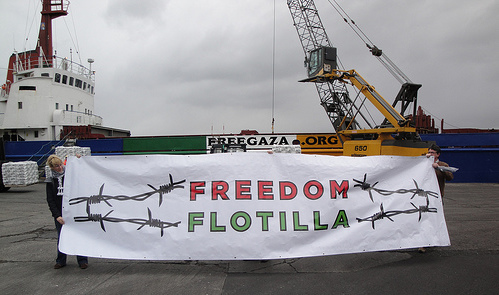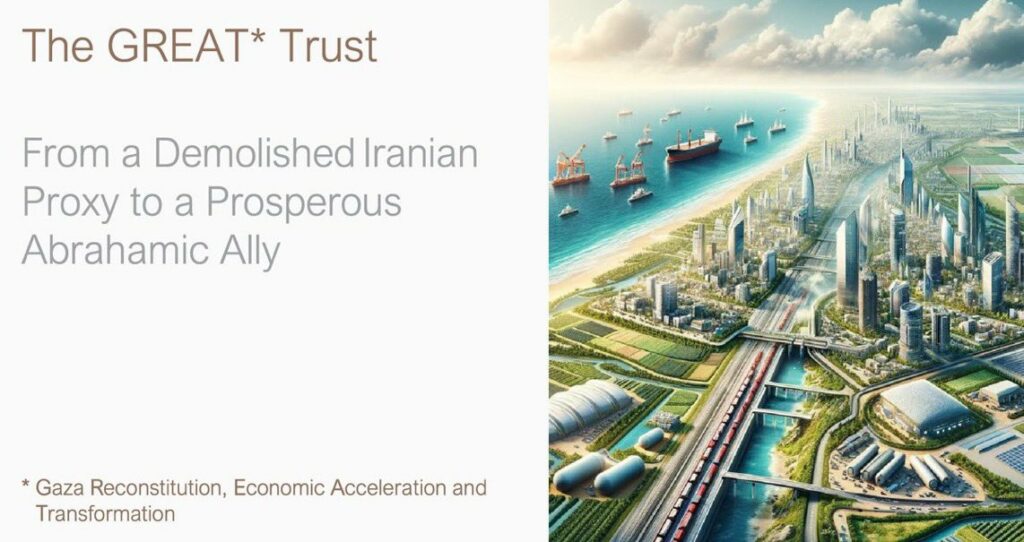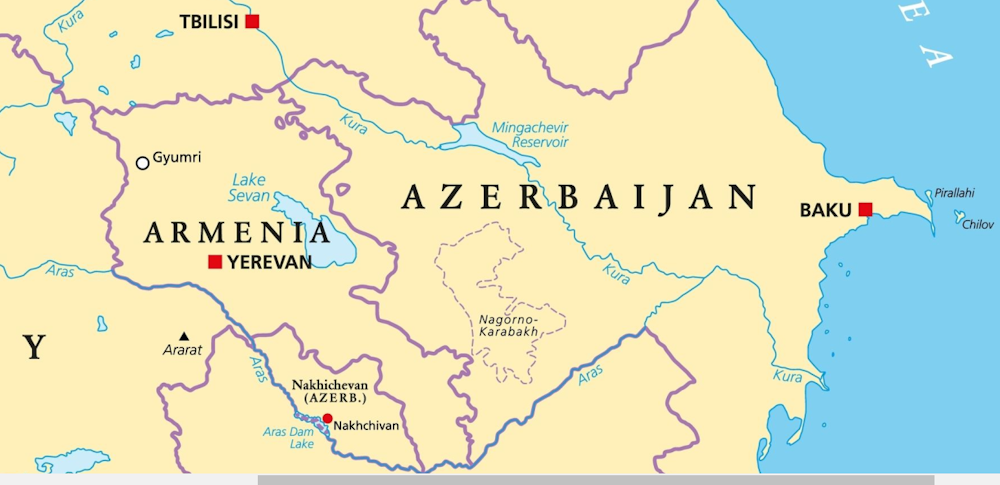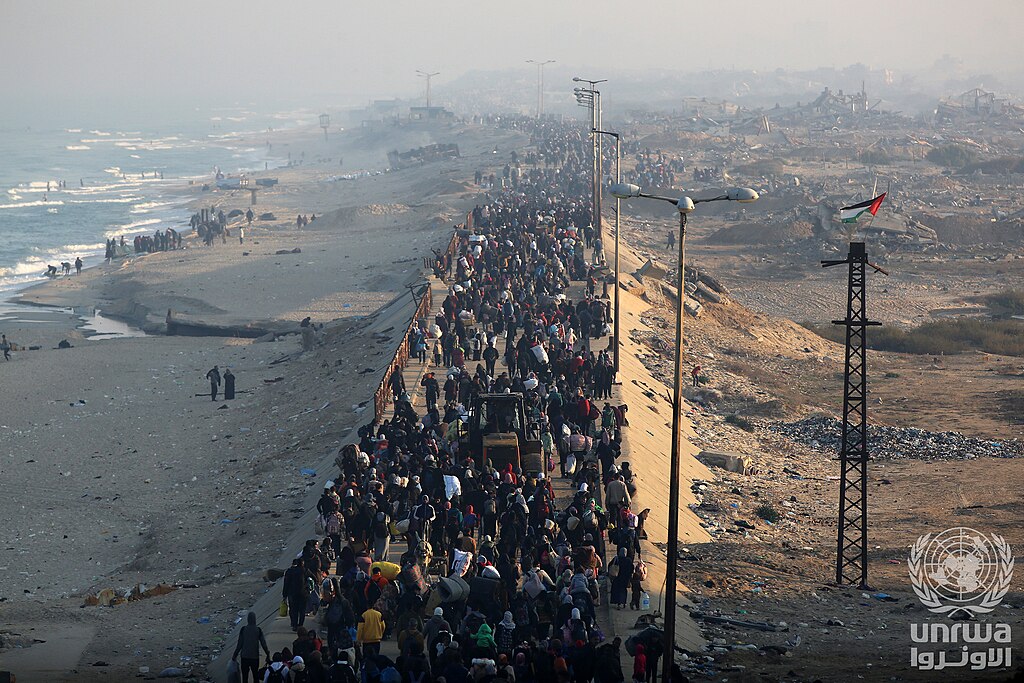
UN endorses US-backed Gaza ‘peace’ resolution
The UN Security Council passed a US-backed resolution endorsing the Trump administration’s 20-point Gaza peace plan. The resolution, passed by a vote of 13 members in favor with China and Russia abstaining, recognizes the proposal’s “Board of Peace” (BOP) as a “transitional governance administration” in Gaza. The resolution also authorizes the BOP to establish a temporary International Stabilization Force (ISF) in Gaza. The ISF will consist of forces contributed by participating states in consultation with Egypt and Israel. The force, along with Israel, Egypt, and a newly trained Palestinian Authority police force, will secure border areas and enforce the permanent disarmament of Hamas. Under the White House proposal, the BOP will be chaired by President Trump, with other international leaders serving, including former British prime minister Tony Blair. (Photo: displaced Palestinians returning home during this January’s ceasefire. Credit: UNRWA via Wikimedia Commons)



